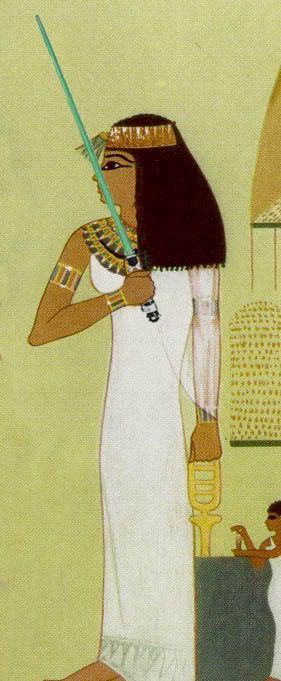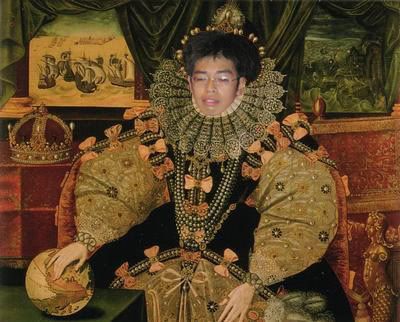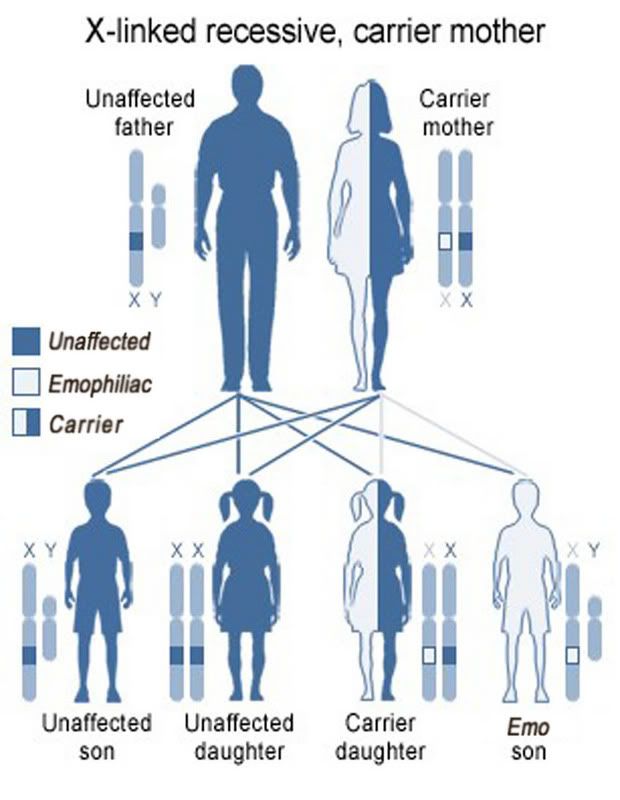Darth Honsum: CP1101 The Art of Class Participation
Module Outline
Overview
In the recent years, Class Participation (CP in short) has played an important role in our IP’s GPA scoring system. In gist, Class Participation is the marks that students are fighting for every time just to get their grades pushed up and often teacher just don’t care. 首先, for example, “某某人” from an 05IP class got somewhere 84.4 in his/her maths module earlier this year and the his/her maths teacher was not willing to do ANYTHING to help him/her to push up the grades. 其次, another 某某人 from another 05IP class got 84.4 for his/her physics module and when he/she asked his/her physics teacher for marks, the teacher was unwilling to give grace (which we always beg for) and don’t even know that 0.1 mark more will allow him to get an A+. 除此之外, there are many more examples out there which involves getting a B instead of C+ and getting an A instead of B+. This makes the grades of every IP student to be rested on the hand of our (to a certain extent) “sadistic” teachers.
WE, the IP students must not be foolish and let them control our fates!
WE, the IP students must learn to grab ANY class participation marks by hook or by crook for a few more points on our report cards!
WE must OWN IT ALL! (Grades of course… what else?)
Hence, there is a need for students to learn about Class Participation!

Module Outline
History of Class participation
Since we have only started on class participation about a year ago, there hasn’t been much data recorded except for imba students that managed to spam all the KM discussion board to a degree that KM has to be shut down for a week for maintenance and removing those spamming posts.
Types of class participation being explored
1) Asking a lot of questions – asking questions is VERY important (just like the passage given for Higher Chinese O’ Levels). Not only it opens the treasury of knowledge but it gives us marks! To ensure students ask as many questions as possible, classes of every subject will be extended from 50 mins to 1 hour 30 mins and the teacher will only get to teach for 30 mins while the remaining hour will be meant for students to ask as many questions as they can.
2) Ask smart questions - REALLY SMART questions - Quantity may not be equivalent to quality. So the level of difficulty of questions raised in class will be very important as well. However, the level of difficulty is somehow related to the time required to answer the question. Based on a research done by Dr. Onn-dray from the University of Cheemilogy, Singapore, it is theorized that X = K*(cube root of Y)^5, given that Y is the level of difficulty, X is the time required to answer the question and K is the subject-constant, a constant that is dependent of what topic that the question is asking about and the teacher who is replying the question. Eg. Philosophy will take a longer time than Maths. This theory is also known as the Theory of Cheemilogy.
Hence, he differentiated equation, which is dX/dY, maps out the rate of change of time required with respect to difficulty. These lead us to an entirely new branch of Einsteinian time-space physics: how to create negative time by creating negative difficulty.
3) Socratic Seminar – the module will teach students on the history of Socratic seminars and explore the advantages and disadvantages of Socratic seminars. Advantages: Everyone gets to come together and learn! And secondly they can just say what others just said and get some marks for Class participation. Disadvantages: Smarter people have a VERY HIGH tendency to dominate the seminar and also tend to argue on a particular subject in such minute detail that the rest have no idea what on Earth they are talking about.
Recent research also shows that choosing the correct place to sit is crucial in getting marks for CP. Why so? One of the many reasons is if the person sitting you is a very smart person and he/she has so much things to talk about and runs out of time, you can borrow his/her note and contribute to the discussion!
4) KM Discussion Boards – the bulk of the module will be on KM discussion boards. Given that students pay 30 bucks every semester, they must know how to use it! KM is not just about downloading all the MI lectures, which Mrs Tan has already taken away, and downloading all the notes when you have not been listening in class! There are so many uses of KM that people don’t know! Hence, to make students feel worthwhile spending the $30 (per semester), this module will teach most of the features and usages of KM to the students. The art of discussing online is very crucial given that as much as 5% of module grades can de dependent on KM discussions.
5) Any more? – More types will be explored in years to come.
Analysis of Class participation
All forms of class participation will be analyzed and by analyzing negative examples, students will learn not to repeat their mistakes. Negative examples would include: Asking dumb or lame questions (e.g. Eesha), keeping quiet throughout 2 hours of Socratic seminar or repeating what has been repeated for 3 or more times and no posting on KM frequently even if you don’t know how to post something. Some of these analyses done by students are considered as surprise test and marks will be counted for their module grades.
Module Assessment
1) Worksheets (10%) – Students will be given comprehensions with passages based on previous posts and compositions written by their seniors or other famous authors. Comprehensions will be similar to Higher Chinese O levels with lots of personal response questions, and questions about the literary skills of the writers, little questions will be copy-and-paste forms as this defeats the purpose in understanding these well-written works.
2) On-the-spot response (20%) – Students will be given 5 minutes to prepare on a topic given by the teacher. This forces the students to think on the spot and stretch their minds to the fullest. This is because students have to be prepared for the situations where they just have to crap on the spot during Socratic seminars or when the students only have several minutes left to post something on the KM discussion boards.
*Under the joint-collaboration with the University of Cheemilogy, a simulator would be designed and built by Dr Phuah-2-rong (PhD in higher order social skills) to simulate real life situations where quick-thinking would be put to test, i.e. when 10 different girlfriends wants calls you and demands to have dinner with you
3) Question-based assessment (20%) – On a particular day, most probably during assessment week, the teacher will walk in and teach the class about a particular topic of ANY SUBJECT. Students are required to think of AS MANY questions as possible in the remaining hour. Students have to strike a balance between the quality and the quantity of the question as these two aspects in questioning are given equal weightage. (If the teacher chooses to talk about philosophy… there is a slight tendency that students get higher marks, as most students tends to ask more)
4) Muscle Fitness test (20%) – Given that students have to raise their hands often to ask questions, there will be fitness test to test the fitness of the arm muscles of the students. Students will be given 1 minute to raise their hands as much as possible. Their hands must be as straight as possible as students will have to attract their teacher’s attention during classes, if their hands are not straight, then that “raise” will not be counted. The scoring system is as follows:
60 times ---> 20%
55 times ---> 18%
50 times ---> 16%
…
10 times ---> 0%
5 times ---> -2%
0 times ---> -4%
Do not be astonished by the number of hand-raises a student has to do to get full 20%, in our interview with Dr Onn-Dray, we learned that he did a staggering amount of 120 hand-raises in just 1 minute! What’s more, he is the current world record holder for the most number of hand-raises in 60 seconds! The record he set was 150 hand raises in 60 seconds and he is challenging his own record next year by aiming to do 50 more!
5) Essay (20%) – Students will have to write a 1000 – 2000 word essay about class participation and its importance. *Note: there will be NO plus minus 10% in the word count though it is quite hard to spot students that exceeded the word limit. The following is a sample essay structure:
- Introduction (开头)
- Reasons (原因)
o俗语说: “吃得苦中苦,方为人上人” raising up your hands very often can be very tiring, but makes you a better person
o “心灵的空虚,充足精神上的需要” class participation enriches one’s spiritual life, something that money cannot buy
- Effects (影响)
o Students will be stoning in class
o NJC will not be as vibrant, though its vibrancy now is quite limited already
o Student’s arm muscles will not be as developed. This is crucial to male students as they need to prepare for NS.
- Suggestions (建议)
o Parents must force their children to raise their hands more and teach their children the importance of class participation (灌输真确的价值观)
o Schools have to give all-rounded education and not just focus on knowledge-based learning (不能一味灌输书本上的知识)
o Government should organize more events to promote the importance of class participation and the drastic effects to its economy, military and society.
o The media should come up with educational programmes to teach students how to use the KM even MORE effectively. (spamming of discussion boards will be censored by the government)
- Conclusion (结论)
6) Class inparticipation (10%)
Ultimately, we come to class inparticipation. Class inparticipation in the class participation module is judged according to a student's skill in not participating in the class, since it is absurd to have class participation in class participation. Students are judged according to their skills in stoning, mugging, and doing everything except speaking up. The module tutors believe this is essential, because of Dr Oon-dray’s proposition that "should there be matter, there is anti-matter.” It is impossible to make students realize what class participation about without an anti-class participation.
Suggested supplementary materials:
- Salonpass or other sorts of pain relieving creams for arm muscles
- Calcium and Iron supplements for development of strong bones
- 5 in 1 DVD of documentaries on social relationships and communication skills produced by Dr Phuah
- Book: “How to ask smarter questions”, Eesha Shah, 2006
- “An idiot’s guide to Socrates”, anonymous, 1995
o Note*: to know more about Socratic seminars read page 117 ONLY (just that 1 page out of 1000 pages)
- “报章读后感合集”, 明日, 2003 – 2005, though this is in Chinese, but the structure of essay writing is essentially the same, students may chose to use some of the 常用句 from the book in their essays. The writing techniques are also important. E.g. 反复,排比,引用,举例
************
H3 Class Participation
Selected students that excelled in the module of CP1101 will be given a chance to take H3 Class Participation. These talented students learn much more about Class Participation (like duh) and may even have the honor to work with Dr Onn-Dray and Dr Phuah, assisting them with their respective research areas.
Dr Onn-Dray is currently working on a new type of energy drink to allow students to raise their hands for one full hour! If successful, his students will also have the opportunity to design an advertisement (which requires the team to write a 10000 word creative brief and come up with a visual ad that last for 10 seconds – Dr Onn-Dray has run low in funds after spending the bulk of his sponsored money on the research itself)
Dr Phuah is currently working on a newer and better version of the simulation program that he wrote a few years ago. His current research would require students to work out the probabilities of different number of girlfriends trying to call you at the same time and requesting for the same thing (i.e. dinner or a 3 hour French-kiss in a public toilet) and the finding ways to increase the probability of a particular event to happen i.e. French kissing.
On top of research attachment, students are required to write a 5000 word thesis on the morality of actively participating in class. A sample topic would be: Given that if some students tend to be more active than others, they will get to learn more, and depleting the chances of other students. However, this defeats the MOE’s idea to give a fair education to everyone! Will promoting class participation be an act of utilitarianism? Or it is based on the virtue ethics that everyone has with them as they grow in a particular environment?
H3 Class participation also the student to do more than 60 hand-raises per minute, hence it is decided that PT-Trainer Dan Hong will be invited to give PT to those that are on the brink of failing. Mr Dan Hong has already planned out a programme to train student’s fitness and most importantly to train their arm muscles which must be perpendicular to the shoulder. Some of Mr Dan Hong’s ex-students said that Mr Dan Hong can do 300 jumping jacks non-stop even when the temperature is only 10 degree Celsius and he is wearing only T-shirt and shorts!



